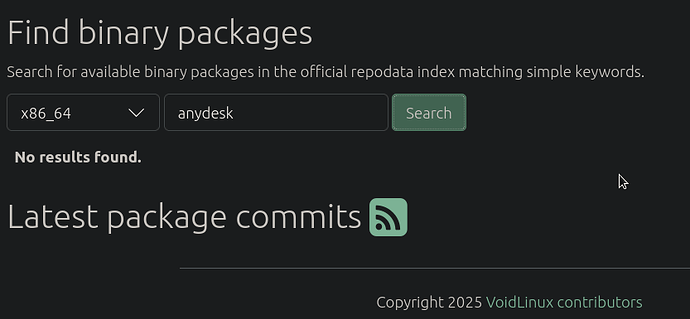Hi Rosika,
Checked in my Void
There is firemon, firecfg, and jailcheck
but no firetools and no package seems to supply it.
I looked into AnyDesk, found this from Google
" Void, being a Linux distribution, doesn’t come with a specific “default” remote desktop app. Instead, it supports a variety of remote desktop tools, with popular choices like RustDesk, AnyDesk, and TeamViewer being readily available for installation through the Void package manager. These applications allow users to remotely access and control their Void system from other devices."
but that seems to be wrong… I can not find AnyDesk or RustDesk or TeamViewer with xbps-query ???
It does have remmina
Then I found this
" While the official Void Linux repository may not include a remote desktop server, users can create custom repositories or utilize third-party packages to add this functionality, as noted in the Void Linux Handbook."
So you would have to do a custom install.
Regards
Neville
